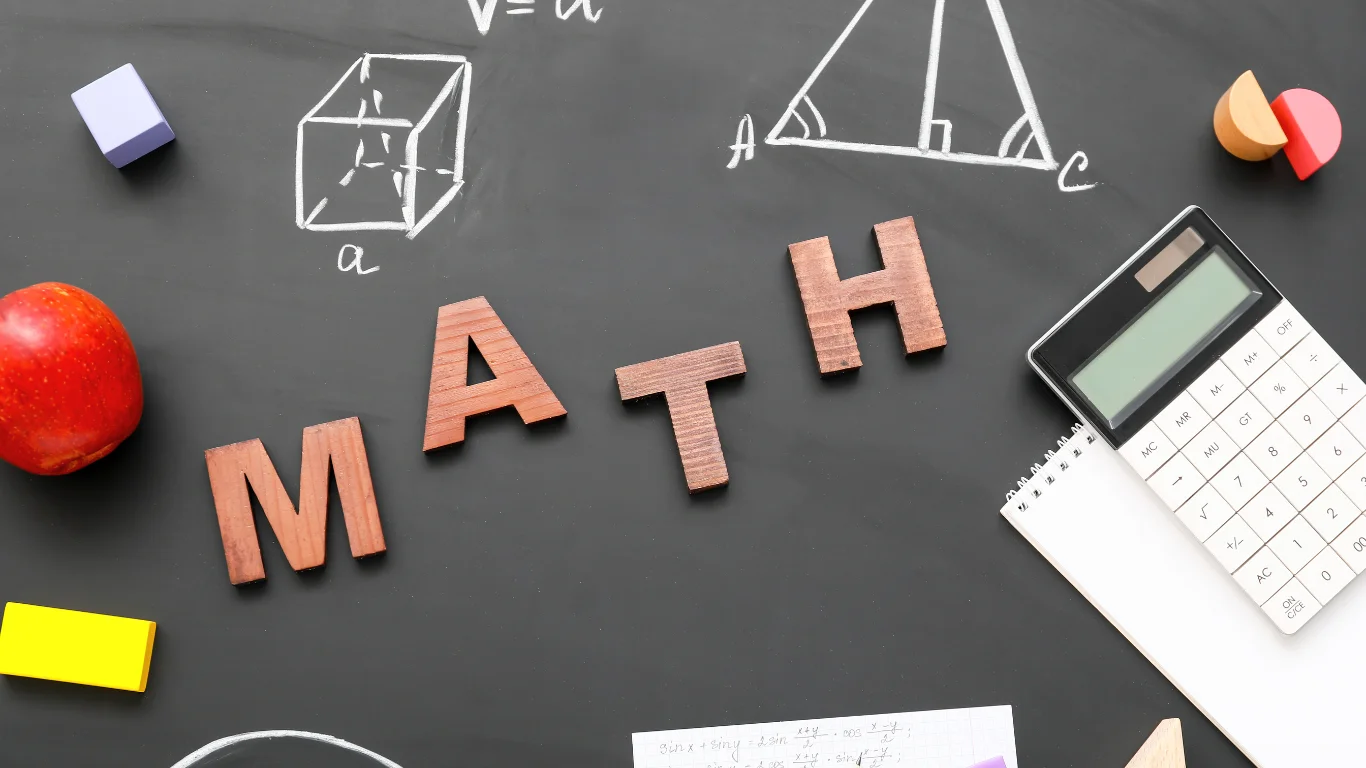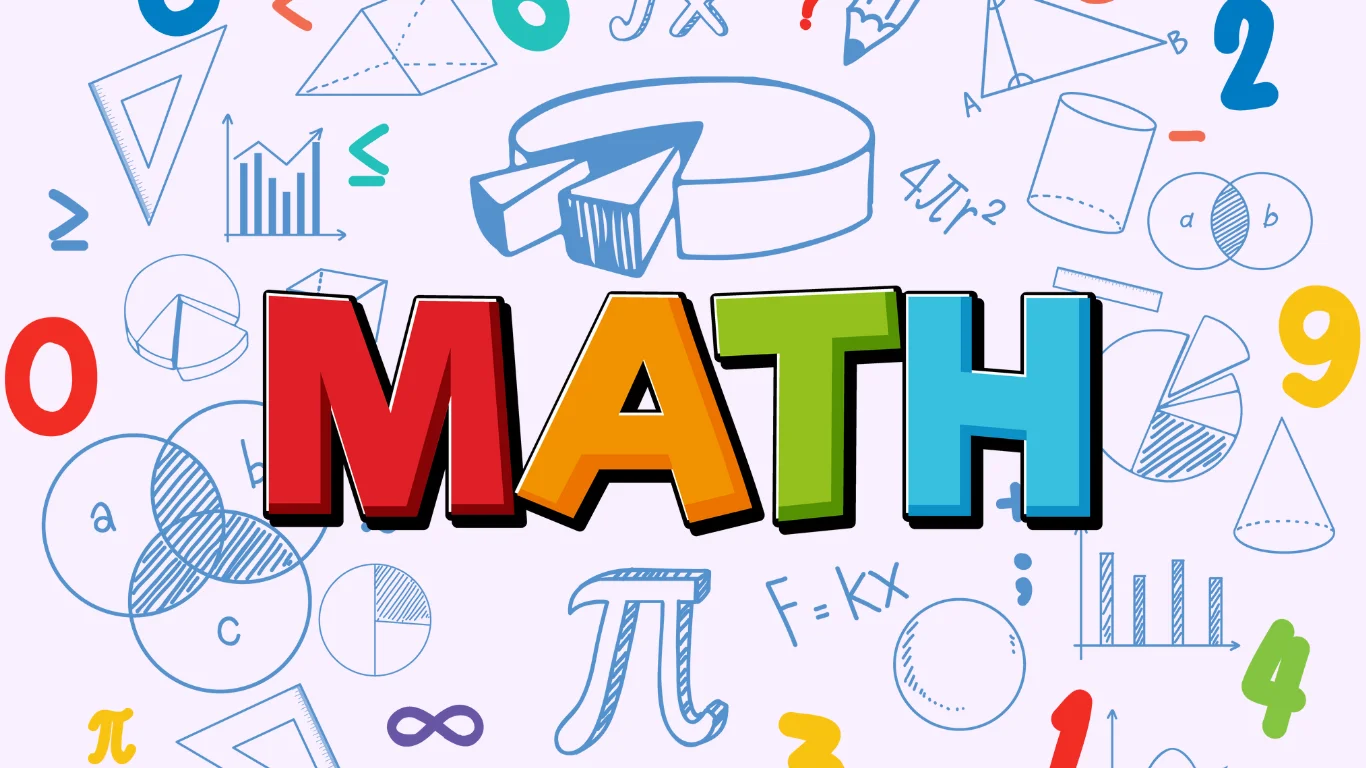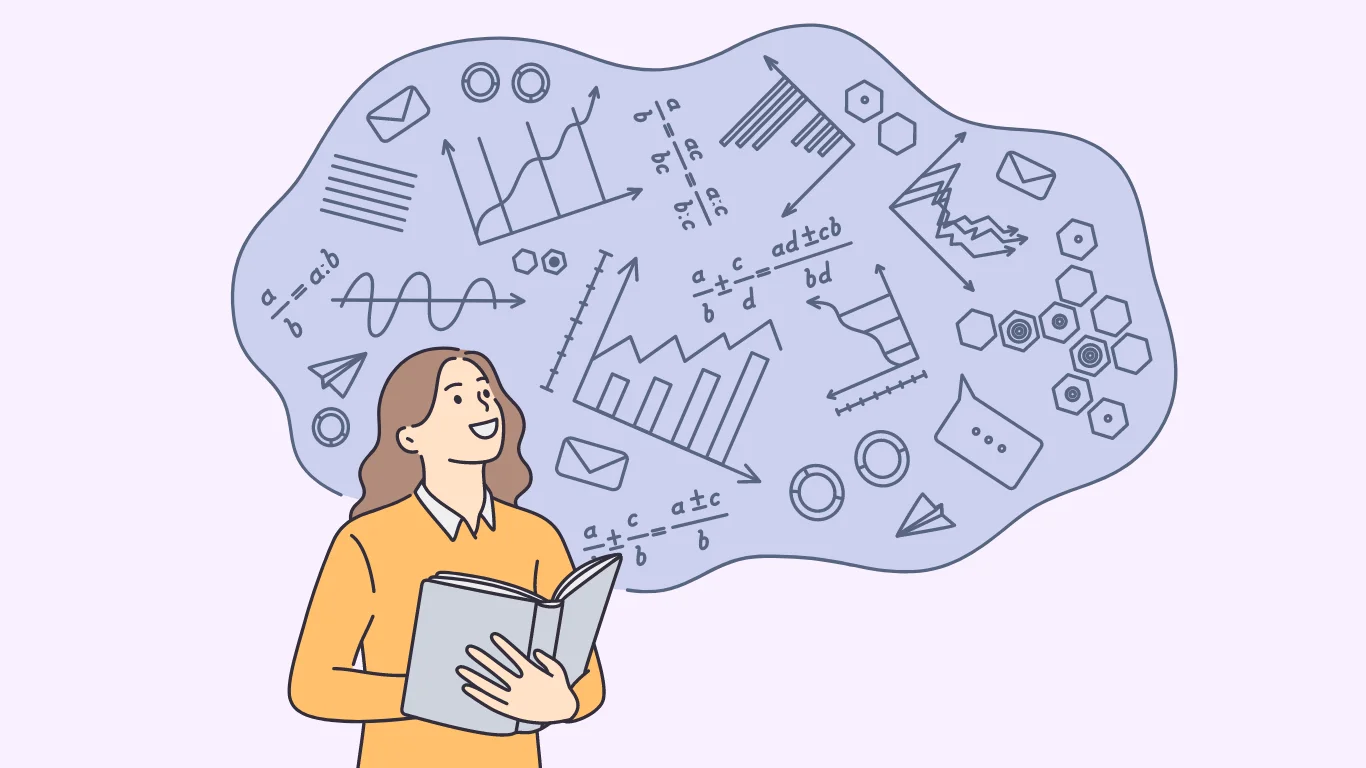
Maths Standard is one of the Math courses available for the NSW Higher School Certificate (HSC). Understanding the NSW HSC Maths Standard course is key to deciding if it's the right math subject for you. This blog post will provide an in-depth look at everything you need to know about Maths Standard, from an overview of the course to tips for succeeding in your HSC exams.
What is Maths Standard?
Maths Standard is a general math course focused on consumer arithmetic, measurement, algebra, data analysis, and networks. It provides students with mathematical knowledge, skills and understanding to solve problems in real contexts.
As one of the two main maths courses categorised as 'General' (the other being Mathematics Advanced), Maths Standard provides an alternative study option for students who do not wish to pursue the more abstract, theoretical focus of the higher 'Extension' maths courses.
The Maths Standard course is designed to support students in developing numeracy skills and capabilities needed for everyday life after school. It provides a foundation for students heading into further training or employment.
Some key features of the Maths Standard course are:
- Practical focus on using maths in real-world contexts
- Develops mathematical reasoning, literacy and skills for work and vocational pathways
- Uses graphics calculators, spreadsheets and other technologies
- Includes an optional study of Networks and Pathways application to transport, routing and careers
- Meets the numeracy requirement for the HSC
The course provides a solid maths foundation while keeping post-school options open - allowing students to develop trade and career readiness while earning their HSC.

Why Study Maths Standard?
There are many excellent reasons for NSW HSC students to consider taking the Maths Standard course.
Develops Crucial Numeracy Skills
Maths Standard establishes critical numeracy capabilities needed for financial literacy, employment, and life:
- Perform calculations for earning, spending, and budgets
- Apply geometry and measurement skills
- Interpret and analyse data and statistics
More Relevant and Practical Syllabus Content
The content in Maths Standard focuses on math skills applicable to real-world contexts:
- Consumer arithmetic and financial math
- Measurement and geometry problems
- Data collection and interpretation methods
- Network modelling
This develops mathematical abilities relevant to future vocational pathways.
Head here for additional study techniques to enhance your understanding and excel in Maths Standard.
Less Abstract Than Advanced and Extension Courses
For students not pursuing careers with high math demand like engineering or physics, Maths Standard offers a more practical alternative to the highly theoretical Advanced and Extension courses.
The Standard course still rigorously covers modelling, problem-solving, and analysis without heavy abstraction.
Matches Interests and Career Aspirations
Maths Standard aligns well for students interested in:
- Trades and vocational pathways
- Business and commerce fields
- Humanities, arts, and language degrees
The mathematical skill development matches the requirements for numerous career trajectories.
What topics are covered in Maths Standard?
Year 11 topics
In Year 11, you will cover four major topics in Maths Standard (source: Mathematics Standard Stage 6 Syllabus 2017)

Algebra
Algebra uses symbols to represent numbers and express relationships mathematically. Studying algebra develops critical thinking by teaching students to conceptually model and simplify problems to derive solutions. Learning algebra is essential for building reasoning abilities, logical processing, and quantitative representation skills.
Measurement
Measurement applies numerical and geometric knowledge to quantify and solve practical problems like estimating time, measuring medicine doses, calculating weight, or finding the area of materials. Studying measurement develops the ability to reasonably estimate quantities, apply appropriate accuracy levels, and use concepts like length, area, volume, and similarity to solve various real-world issues.

Financial Mathematics
Financial Mathematics applies numerical skills to make informed decisions about earning, spending, investing, saving, and borrowing money. Studying financial math develops students' abilities to analyse financial situations, calculate optimal solutions given circumstances, and solve money-related problems. Learning financial mathematics teaches students to make sound financial choices, understand their consequences, and effectively manage personal finances.
Statistical Analysis
Statistical Analysis involves collecting, exploring, displaying, analysing, and interpreting data to identify and convey key information. Studying statistics develops the ability to carefully assess situations and recognise influencing factors when presented information from third parties, including potential misrepresentation. Learning statistical analysis is important for understanding how statistical thinking contributes to decision-making in society, professional settings, and personal contexts.
Outcomes

Year 12 topics
In Year 12, you will cover five major topics in Maths Standard (source: Mathematics Standard Stage 6 Syllabus 2017)

Algebra
Algebra uses symbols to represent numbers and relationships in mathematical models, enabling conceptual problem simplification before translating solutions back to complex practical applications. Studying algebra develops critical logical reasoning abilities, quantitative representation skills, and the capacity to solve problems.
Measurement
Measurement applies numerical and geometric knowledge to quantify and solve practical problems involving rates and ratios like speed, map reading, and plan interpretation. Studying measurement develops the ability to solve problems related to two and three-dimensional models and representations and work effectively with diverse rates and ratios in real-world situations.
Financial Mathematics
Financial Mathematics applies numerical skills to analyse financial situations involving earning, spending, investing, saving, and borrowing in order to calculate optimal solutions and solve money-related problems. Studying financial math develops students' abilities to make prudent financial decisions, comprehend their ramifications, and effectively manage personal finances.

Statistical Analysis
Statistical analysis involves collecting, displaying, analysing, and interpreting data to identify and convey vital information. Studying statistics develops the ability to carefully assess situations and recognise influencing factors when presented information from third parties, including potential misrepresentation. Learning statistical analysis is important for appreciating how data-driven conclusions can inform decisions made by groups like scientists, businesses, and policymakers.
Networks
Networks graphically represent and model situations to logically approach decision-making. Studying networks develops the ability to illustrate a sequence of tasks or connections between people/items as clear, concise diagrams in order to comprehend the relationships and solve related problems. Learning networks enables creating logical task orders and understanding links between entities through diagrammatic modelling and analysis.
Outcomes

Are There Any Prerequisites for Maths Standard?
When selecting your HSC mathematics course, it's important to understand if you need any prior knowledge before taking Maths Standard.
What Background Knowledge is Needed?
There are no strict prerequisites for the Maths Standard course. However, students will benefit from having:
- Strong numeracy skills
- Proficiency in topics covered in Stage 5 mathematics like:
- Basic calculations
- Measurement and geometry
- Graphing algebraic relationships
- Basic statistics
This provides a solid foundation to build upon in the HSC Standard curriculum.
What skills/capabilities are required to do Maths Standard?
Maths Standard builds on the mathematical concepts learned in junior secondary math, providing real-world and practical applications. Key skills and capabilities students need include:
- Solid grasp of fundamental math skills like decimals, fractions, percentages, ratios etc.
- Ability to interpret and extract relevant information from tables, charts, and graphs
- Proficiency in basic algebra and substitution into formulae
- Applied numeracy skills to solve problems involving measurement, scales, and basic statistics
- Ability to use mathematical reasoning to explain results
Discover tips and tricks on note-taking here to enhance your understanding and retention of complex mathematical concepts.
Maths Standard has less of a focus on theoretical concepts. Students need perseverance to follow multi-step procedures and computations. The capacity to recognise patterns in data and make logical connections between mathematical ideas is important.
What type of students should do Maths Standard?
Maths Standard is intended for students who have achieved basic numeracy skills in junior math and want to build practical mathematical literacy. It suits students with reasonable math aptitude who require mathematical skills for vocational courses or work.
Maths Standard appeals to students who struggle with advanced algebra and complex problem-solving. Students who want to consolidate fundamental math skills from junior years rather than progress into higher math often thrive in Maths Standard.
It is well suited to students who learn better with concrete examples rather than theoretical ideas. Hands-on and experimental approaches to mathematics tend to suit the practical focus. Students aiming to pursue further vocational studies or enter trades and technology careers are well served by Maths Standard.
The course provides solid mathematical preparation for life while meeting the HSC numeracy requirement, giving students flexible future study and career options.

How is Maths Standard assessed?
Maths Standard has both internal school-based assessments and an external HSC exam. The assessments are designed to test students' understanding of real-life mathematical concepts and their ability to apply numeracy skills to practical problems.
School-based assessments (50%)
For school-based assessments (worth 50% of the final mark), students complete a variety of tasks like assignments, investigations, fieldwork reports, and tests. Teachers set tasks relevant to modules of work to assess specific math skills and knowledge. The tasks give students opportunities to show their procedural work and explain their reasoning.

source: Assessment and Reporting in Mathematics Standard Stage 6
Final exam (50%)
The HSC exam is worth 50% and tests students on the whole 2 years of content. It consists of short answer questions, multiple choice, and extended response questions based on provided stimulus. The exam assesses mathematical techniques and modelled scenarios from study modules.

source: Assessment and Reporting in Mathematics Standard Stage 6
Examiners look for the ability to extract info from provided materials, undertake accurate working out, select and correctly apply appropriate formulae, and clearly communicate explanations. Marks are often awarded for showing procedural working.
The HSC exam questions generally do not require significant abstract thinking or advanced problem solving strategies. They tend to focus more on correct computations and demonstrating understanding of real-life applications.
Student results get scaled based on the cohort's overall performance to provide an equitable HSC comparison across different schools and years. The Mathematical Skills scale typically has lower maximum marks than the hard Mathematics course scales.
Here are some links to past HSC exams:
How to succeed in Maths Standard?
Stay on top of fundamentals
- Revise essential mathematical skills and formulae thoroughly. Having automatic recall of times tables, percentages, measurement conversions etc. gives you capacity to focus on multi-step worked examples.
Attempt past exam papers
- Practising full exam papers under timed conditions helps you master exam technique and commonly tested concepts. Review the mark schemes to see where you may be losing marks.
Ask your teacher to clarify concepts
- If you don't understand something, don't let gaps in knowledge accumulate. Ask your teacher for help early when struggling with concepts so you don't fall behind.
Relate concepts to real life
- Maths Standard focuses on applying numeracy to practical situations so look for opportunities to link classroom lessons to real life contexts. Word problems may make more sense if you translate the words into a scenario you can visualise.
Use graphics calculators effectively
- Your graphics calculator is an invaluable tool if used smartly to check workings, draw graphs or create tables. But don't become over-reliant - show key working out by hand.
Read questions carefully
- Many marks are lost in exams simply from misreading what the question asks you to do. Underline key instruction words and double check you are answering the specific question.
Structure extended responses
- Plan short and long answer questions before launching into pages of calculations. Use clear headings, explain your reasoning, and be explicit about your conclusions.

What resources are available for Maths Standard?
There are many useful resources available to help students with Maths Standard:
Textbooks
- Popular textbooks like “Maths Standard Year 12” from Cambridge University Press” and “Maths Standard General Mathematics HSC” textbook from the Jacaranda series provide good foundations on syllabus content with plenty of worked examples and practice questions.
Revision Guides
- Concise revision guides like Insight Publications’ “Mathematics Standard Year 12 Revision” offer summaries of key concepts and definitions. Practice exams allow application of content.
Online Tools
- Websites like Khan Academy have helpful Maths Standard video lessons working through concepts step-by-step. Tools like automatically marked quizzes on Edrolo test understanding.
NESA Resources
- The NESA website has essential info like past HSC exam papers, marking guidelines, study techniques and syllabus documentation - all helpful preparation tools.
Apex Tuition Australia has expert Maths Standard tutors who achieved outstanding HSC results themselves. Drawing on deep content knowledge and exam experience, they provide personalised assistance identifying student problem areas and remedy gaps in knowledge. One-on-one home tutoring consolidates syllabus concepts and builds exam technique so students can optimise their HSC performance.








